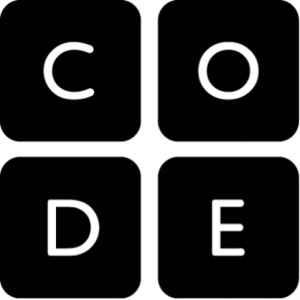Computer Science Principles
Impact
In 2019, Code.org Computer Science Principles classrooms accounted for 42% of all U.S. students taking the Advanced Placement exam, up from 38% in 2018. Over 39,000 Code.org students took the AP Computer Science exam, including 13,110 female students, and 11,513 underrepresented minorities. (See our 2019 Annual Report). Since Code.org was founded three and a half years ago, 11 countries, 31 U.S. states, and over 120 U.S. cities and school districts have announced efforts to expand access to computer science as part of the K-12 curriculum; the new Advanced Placement (AP) Computer Science Principles course has launched in over 2,000 classrooms; over 50,000 U.S. teachers have attended workshops to begin teaching computer science; over 500,000 teachers globally have begun teaching computer science classes to over 16 million students; diversity in computer science classrooms has improved for two years in a row; the Hour of Code has surpassed 350 million served – reaching one out of every 10 students on the planet; and 8 Presidents and Prime Ministers have hosted events to inspire millions more to join this teacher-powered movement.
Accomplished
- Need Accomplished
- Evaluation Accomplished
- Sustainability Accomplished
- Replication & Scalability Accomplished
- Partnerships Accomplished
- Capacity Accomplished
- Challenging & Relevant Content Accomplished
- STEM Practices Accomplished
- Inspiration Accomplished
- Under-Represented Groups Developing

We need more of this. Education needs more of this. ‘This is crazy fun, Mr Feller. I’m pretty much going to tell all of my friends to take this class.’ That’s from one of my AP CS Principles students. Thank you for developing the curriculum that you have developed. Thank you for actually having a very profound effect on education instead of just saying you wanted to do it.
CS Teacher, South Broward High School, Florida
Design Principles
The programs in this database clear a high bar. STEMworks reviewed each program against the Design Principles for Effective STEM Philanthropy. Programs must be Accomplished () across all Design Principles, or be Developing (
) in a maximum of three areas.
Overarching Principles
-
Need Accomplished
Identify and target a compelling and well-defined need.
-
Evaluation Accomplished
Use rigorous evaluation to continuously measure and inform progress towards the compelling need identified.
-
Sustainability Accomplished
Ensure work is sustainable.
-
Replication & Scalability Accomplished
Demonstrate replicability and scalability.
-
Partnerships Accomplished
Create high impact partnerships.
-
Capacity Accomplished
Ensure organizational capacity to achieve goals.
STEM Principles
-
Challenging & Relevant Content Accomplished
Offer challenging and relevant STEM content for the target audience.
-
STEM Practices Accomplished
Incorporate and encourage STEM practices.
-
Inspiration Accomplished
Inspire interest and engagement in STEM.
-
Under-Represented Groups Developing
Identify and address the needs of under-represented groups.
Program Overview
Code.org’s Computer Science Principles is an introductory Advanced Placement (AP®) course for grades 9-12 designed to broaden participation in computer science. Code.org is recognized by the College Board as an endorsed provider of AP® Computer Science Principles curriculum and professional development. The course has been reviewed by the College Board and is pre-approved to pass the course professional development is held to (and goes beyond) the standards of AP® Summer Institutes. The official AP® exam launched in the 2016-17 school year. Our team designed the AP® Computer Science Principles curriculum to support students and teachers new to the discipline. The curriculum includes daily lesson plans made up of inquiry-based activities, videos, assessments, and computing tools, allowing teachers to guide and learn alongside students as they discover core computing concepts.
The curriculum features:
- Daily instructional lesson plans that include inquiry/equity-based pedagogy and background content
- Formative and summative assessments, project exemplars and rubrics
- Widgets and simulators for exploring computing concepts like text compression and the Internet
- Concept and tutorial videos for students, and teaching tips-and-tricks videos for teachers
- Code Studio—a learning platform where students interact with lesson materials and tools, and where teachers access a dashboard to see student work and progress
- App Lab—a JavaScript programming environment in Code Studio, designed for creating event-driven web apps with block-to-text workspace and debugging capabilities.
Teachers attend a 5-day in-person workshop designed to introduce the CS concepts from the curriculum, AP® elements of the course, and core teaching practices. (Travel may be required.) They continue with job-embedded workshops and online modules focused on supporting their first year of implementation. Text adapted from Code.org
Funders and Partners
Our top six major donors are Ballmer Family Giving, Facebook, Google, Infosys Foundation USA, Microsoft, Omidyar Network.
Additional donors can be found here: https://code.org/about/donors
Our major partners can be found here: https://code.org/about/partners
